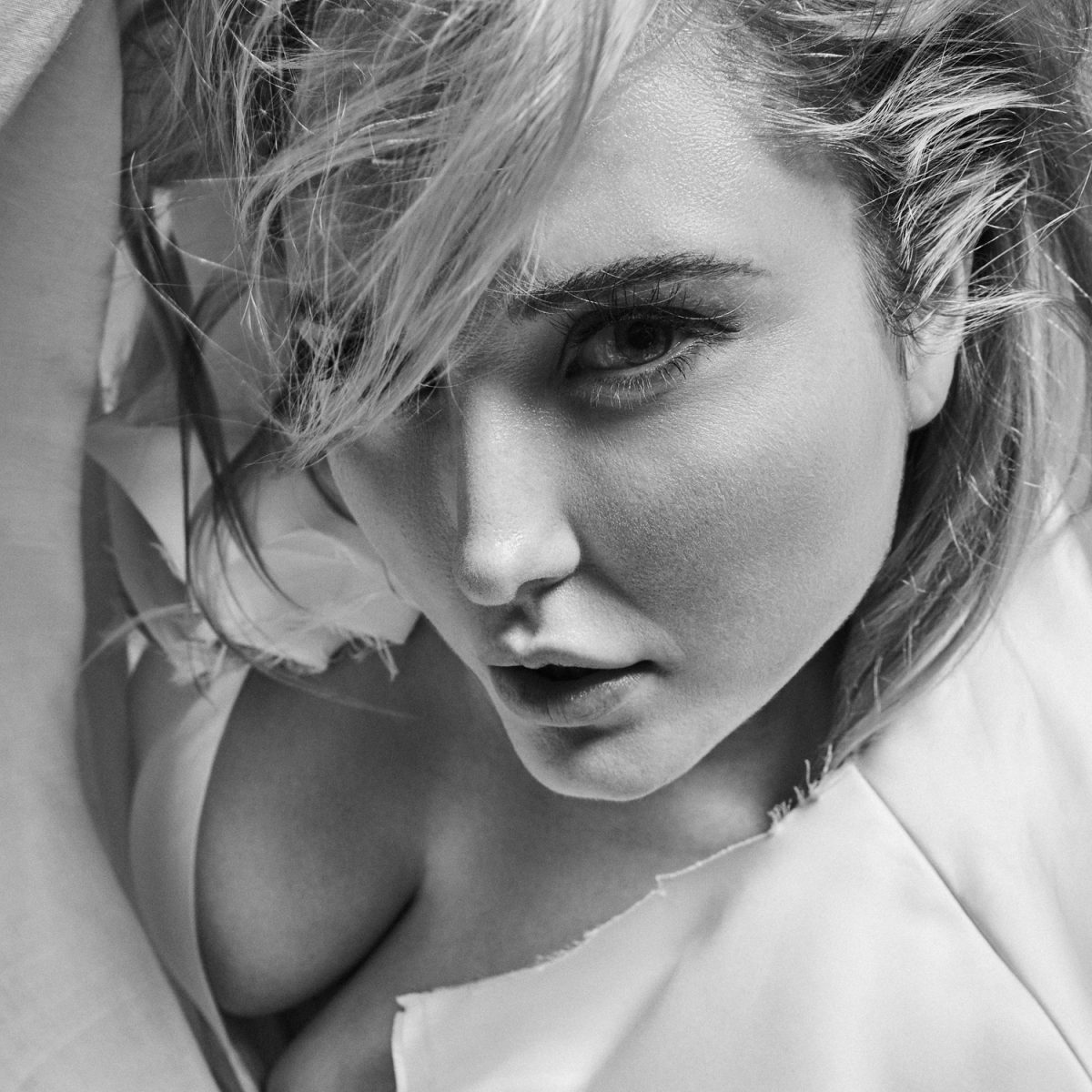
Kicking off her career at age 14 as a curve model, the now 28-year old Hayley Hasselhoff has since evolved to encompass so much more. A model, actress, activist, and public speaker, Hasselhoff has not only expanded her platform, but used it to accomplish so much in the realms of women’s health, body positivity, and mental well-being awareness. In addition to becoming the first plus-sized model to grace the cover of European Playboy this year, Hasselhoff has stayed busier than ever, with activist projects ranging from a well-being Instagram Live series to charity work for anti sex-trafficking and environmental organizations, to even talking with Parliament for change in the modeling industry. Always selective about the work she takes on, at the core of each endeavor is an ever-present philosophy of self-worth, with an understanding that not every day will be perfect.
Spreading her advocation of acceptance to the worlds of fashion, television, activism, social media, and even politics, Hayley Hasselhoff has not let the pandemic slow her mission to spread her message of body positivity, inclusion and self-love. In fact, it’s only pushed her harder.
The Untitled Magazine’s Indira Cesarine caught up with Hayley Hasselhoff about her goals as an activist, her personal ideologies, and her latest Playboy cover shoot by Ellen Von Unwerth. Read the full exclusive interview below.
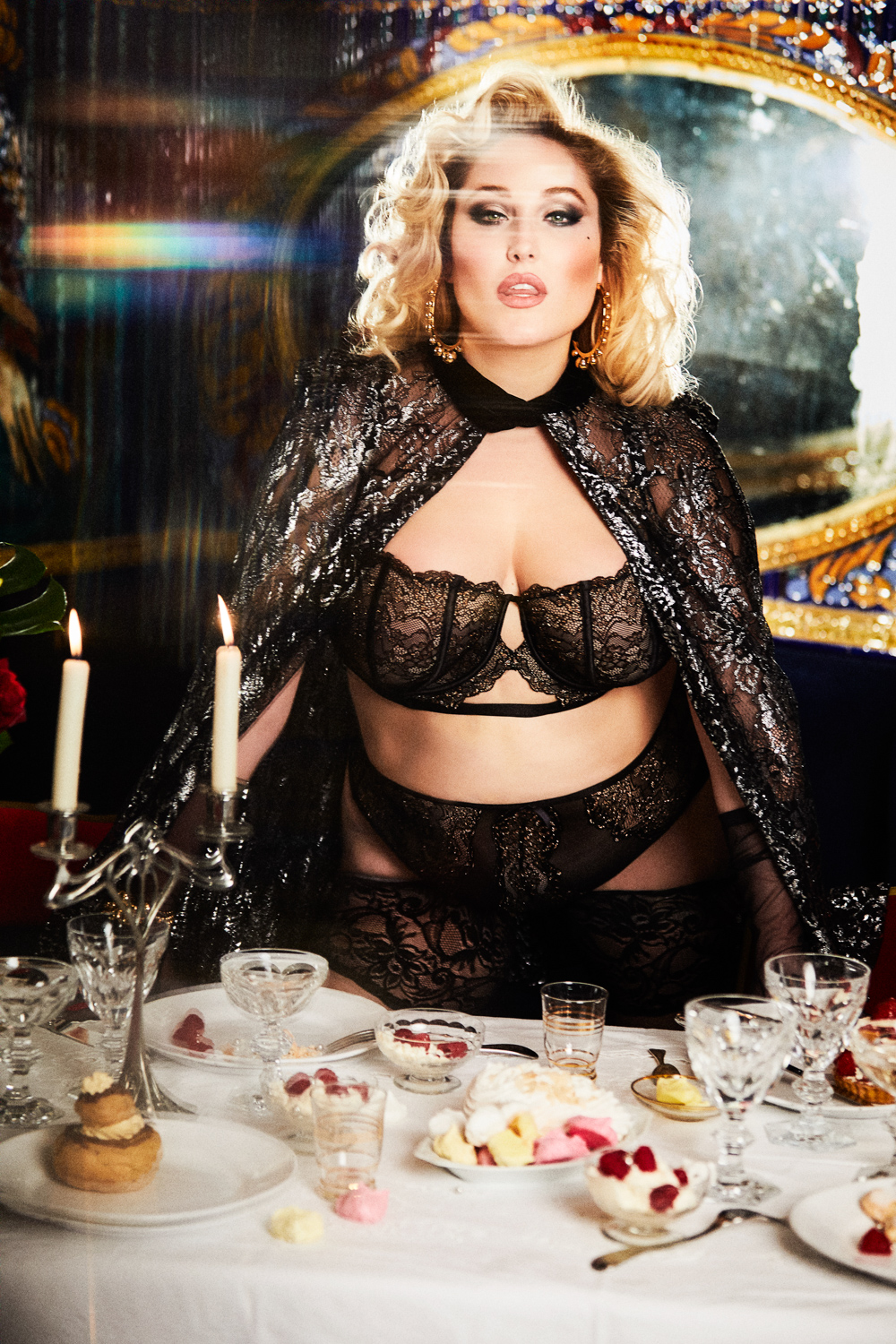
I have a million questions for you so why don’t we chat about what you’ve been doing? You’ve been busy with a lot of exciting projects! Are you in LA at the moment?
I’m in LA, just moved back. I was kind of living between New York, LA, and London for quite some time. Then obviously the pandemic put things into perspective and now I just moved back here in December.
Do you consider yourself as more of an actress or a model? If you were to describe to somebody you just met what you do, how would put it in your own words?
I would say I’m an actress, curve model, and advocate. But I’ve done a lot of things over the years just in the size-inclusive community. I was Good Morning America’s resident style-host for Strahan, Sara, and Keke for the past year and a half before the show actually went under during the pandemic. I do a style host spot as well on a UK morning show called This Morning. I’m also the fashion and well-being editor for Maire Claire UK. So I kind of do a lot of assortments of things within the fashion curve community where I’ll go outside of just being a curve model, but I would say that acting and curve modeling are obviously the two main hubs that have been around since the start.
How do you manage to balance all the different things you’re doing?
You know, I love wearing so many hats. I think I’m just such a creative being that my hobbies are my passions and my passions have turned into my job. So I’ve been very blessed to sort of explore. I started modeling when I was 14 as a curve model, and always knew I wanted to be an actor. I was on a show called Huge when I was 17 on ABC Family, and when the show got canceled, I ended up exploring other things. But I ended up traveling into the curve community again and found that there was so much availability overseas and once I got over there it just sort of kicked off for me and I was just continuously working.
So when one thing is off, like when my show got canceled, my head goes straight to: what else can I create in the world that I am in? I love being able to continuously create. My favorite thing about the past eight years of my career and my life was being a digital nomad. I’m always preparing for that next job on that flight over that country, and I didn’t have a stable home base because I was kind of was consistently having jobs that would take me on a month’s basis to different places. I really just enjoy being able to explore different parts of myself, explore different parts of my craft, and amplify the conversation around the curve community. Not just as a model but also as an advocate, I think it was really beneficial for me.
I always thought I was going to go to design school. Design was always sort of my passion, I was always redesigning things as a kid. There was not availability out there for my size so I wanted to create it, and that was sort of my goal getting back to the modeling industry. I just designed two collections for Elvi that were sold exclusively at Nordstrom. So it brought about my idea around how I can become an advocate and activist in the body image movement through other outlets beyond modeling.
So then it brought me to becoming a Creative Director for Maire Claire and speaking about curves as a writer and amplifying the voices of many different brands that were online worldwide. That was 2016. So back then we were still sort of itching our way into figuring out what availability was there and how we can amplify those online retailers to different people in different countries to know that even if you can’t find it in the stores or even if you can’t find it in your town, there are other places to be able to amplify those voices and availability that is out there, and that can be looked at in a more high fashion sense.
What would you consider to be the most important thing you would want young women to take away with regards to the work you do with body positivity, curve modeling, and women’s health?
I think my biggest message is really just having women of all different shapes and sizes find that love for their body. We’re always trying to achieve the unattainable. We’re always looking for what’s going to come rather than what already is, and I want to be able to make a movement with this [Playboy] cover and just in general by saying that you are worthy, you are seen, you are loved right here, right now. You are able to celebrate your body for what it is today and understand that it is going to be an ever-evolving relationship with your body.
It’s not like you wake up one morning and you say “Okay. For the rest of my life, from here on out, I’m always going to be body positive.” It’s going to always be an up and down battle because your body grows alongside with you. In life as we evolve as people so do our bodies with us. So I want to be able to showcase that it starts with today, but knowing that you can catch yourself on your bad body days and accept them, I think is one of the biggest keys. At least even for my journey, it’s just living in a state of acceptance. I accept my bad body days for what they are but I know that I need to have those bad body days to get back to my good ones. I need to be able to validate my feelings and how I’m thinking about my body, process it, and then remember the worth that my body gives me.
We forget so often that our bodies are actually our home and our vessel. They’re what keeps us alive. We think so much more about the outside perception of what they look like rather than what they give us. So I think it’s about changing the conversation around that. [European Playboy] is a magazine that is categorized around desire and around being empowered and being sexy. This cover, in my opinion, is the first time we’ve been able to have somebody on the cover of a magazine like that and be able to showcase that you are desired no matter what shape or size you are. That you are valued. That you are wanted. And so it’s changing the conversation through media and through editorials. I think it’ll start to help how you see that being different or having diversity and size inclusivity is a beautiful thing to make people understand that equality for all is really the conversation that needs to be had.
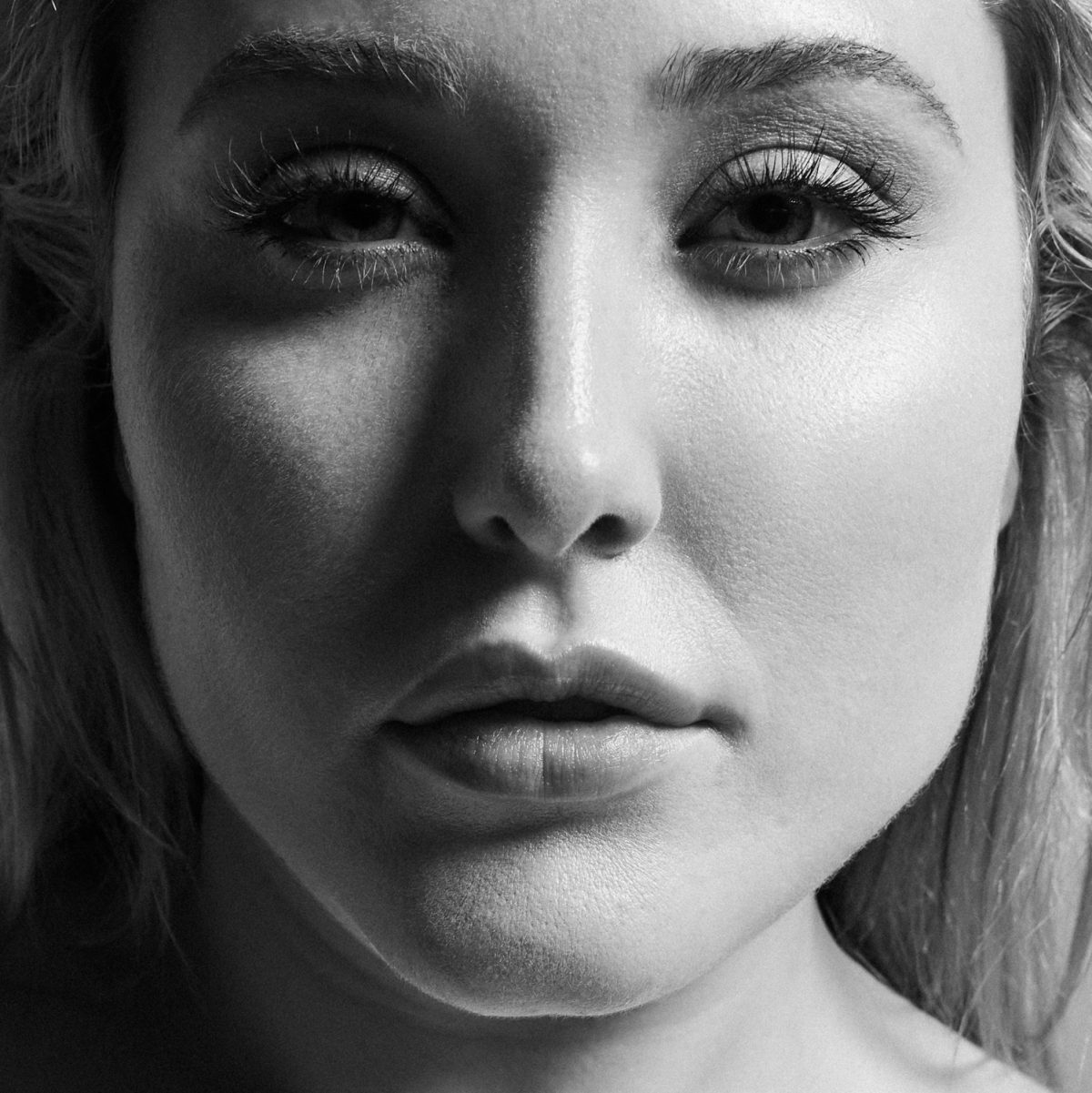
Let’s talk a little bit about your recent shoot with Ellen von Unwerth for Playboy. How did that come about?
So Playboy and my team have a really good relationship and they sort of collectively came up with this idea of me becoming the first-ever curve model on the cover of the European issue. They approached me and I think, in the beginning, it was such a substantial thing for me to be asked to do during a global pandemic. To understand the idea behind being able to celebrate my body for what it is right now. And then we collectively came up with the right idea for a photographer. We approached Ellen, and of course, her coming on board was such a great blessing. We really had a collaborative experience down to where we wanted to shoot it, the city I felt most empowered and sexy in, and it was such a beautiful experience, to say the least. Not just only because of working with Ellen and working with Playboy, but I think to do a shoot like that during the time period when lockdown was in full force in London and Paris, where we went to shoot it, it really signified this idea behind our bodies being able to be celebrated and how we can celebrate it for our own personal self. It may be different for other people, but for myself, it was just a beautiful moment to say I have ownership of my body and I’m here to celebrate it in every way, shape, or form, and this is the way that I choose.
What sort of direction did you guys go with the shoot?
If you’re familiar with Ellen’s work, she shoots very much with a cinematographic feel. You sort of feel like there’s a story behind what we’re shooting and who she is. So it was perfect and right up my alley. Like I said, the team at Playboy were so giving, just saying where do you feel best and obviously where can we all meet in a place that’s COVID-safe and we can all travel to. So we ended up meeting in Paris. We shot at a gorgeous location. On the walls of the location that we shot at, there were beautiful paintings of Renaissance women and it just celebrated this idea of the woman body in its art form. The shoot was very Hollywood glamour, I would say, but it’s in the sense of old-Hollywood glamour mixed in with art deco. It was a very fun, celebratory shoot. I mean we had one shot where I’m in front of the tables, luxuries, delicacies, and wine. It was very theme-driven and I think that doing a shoot like this is beautiful to know that I can shoot something that’s artful rather than it just being me. We’re there to tell a story and to celebrate and that’s exactly what I think Ellen captured of the relationship that we all had on the day.
What do you hope people take away from you being the first curve model to do the cover of European Playboy? What impact do you hope that will have?
I really hope that it allows you to identify with it to see that you are beautiful no matter what shape or size. Right now, with everything that’s going on in the world especially, I think this idea about our self-love and our self-image and social anxiety has been extremely heightened. So I hope it will help people to understand that there’s no time like today to celebrate you. And that we shouldn’t wait to celebrate our bodies. Our bodies are beautiful just the way that they are. You need to love who you are today to get to where you are tomorrow. And I really do hope that that’s what gets taken away from this; just a sense of being able to celebrate yourself but also for women to be able to say “I have the right to take ownership of my body and celebrate it the way that I want to, and I don’t need somebody else’s approval or direction to tell me how I can celebrate me.”
Your work as an activist has previously involved a lot of traveling and speaking around the world. How have you adjusted with COVID-19 and being able to get your message across to people? What sort of changes have you made in order to continue your message and goals?
It’s definitely been one of those moments in your life where you start to look back and go “wow, I was so blessed that travel was a part of my life at some point and I was able to go and be in-person.” I mean I spoke to Parliament a couple years ago about trying to change a model law to protect models from going to unhealthy lengths. I’ve done a lot of amazing work in different countries.
When I got to LA, I coincidentally enough was here for a project and was going to fly back to the UK, but sort of got stuck here because it was our first lockdown and nobody could go anywhere. The first day in lockdown I decided to launch an Insta-live series called Redefine You: A Conversation for Well-Being. And Redefine You was actually an idea that I had years ago where I started to write about my own journey with my mental health and being able to break down this stigma of how we can have normalized conversations around mental health but also understanding how to take ownership of self. I’m a workaholic, that’s just who I am, and I was sort of like “I can’t just sit here and wait for things to open up.” So literally the first day [of lockdown] I launched Redefine You, which was having empowering conversations with friends of mine in the industry about their ownership of self, about their mental health, about how their struggles have brought them to their triumphs. I had people like Kevin McHale to Gigi Gorgeous to Katie Stevens. I had a great group of friends who were willing to come onto the platform just to openly discuss how as artists, we all deal with the fear of the unknown.
That’s something in which we have had to combat since we’ve started in this. So we’ve all had ways of understanding how to walk along alongside our anxiety. We still have to get up, get to set and show up. It was my way of saying talking to an audience of people who are at home right now for the first time, dealing with losing their jobs or dealing with the global pandemic and fear of the unknown, and hopefully they’ll hear something from these conversations that will inspire them and encourage them to know one they’re not alone. We’re sharing some tricks that we’ve found in our careers that we’ve had to apply in our personal life that can hopefully help you with what you’re dealing with here and now.
So I did 40 episodes of that. I ended up doing a mental health incentive called “Check In With You,” which I’d love for you to take a look at checkinwithyou.com. That was a pure passion project throughout the pandemic where I got about 60 friends of mine in the industry to check in with themselves and to discuss what they’ve found during this time. Throughout all of that, I have been doing Self-Care Sundays with Maire Claire talking about self-care routines and bringing light to different practices with techniques that are out there to help us with our mental health and our mental well-being.
I mean the list goes on but I have definitely been shifting my understanding of traveling the world and being an activist and now honing in on how we have this beautiful opportunity where we can actually access so many more countries in one platform by raising the conversation through these beautiful outlets. Through doing panel sessions. Through places like clubhouses that just opened up. There’s so many other ways in which we can continue to have these on a broader scale where we can all amplify the importance behind speaking up about our mental well-being. And I say mental well-being because this is a new territory as well for me to speak about.
I’ve always been a body activist, but I would say that my relationship with my body was always down to my relationship with my mental health and well-being. It was the lack of self-love that I had for my own self growing up that really identified my relationship with my body. And as I got older and I had a better relationship with my mental well-being and my self-love, I started to have a better relationship with my body.
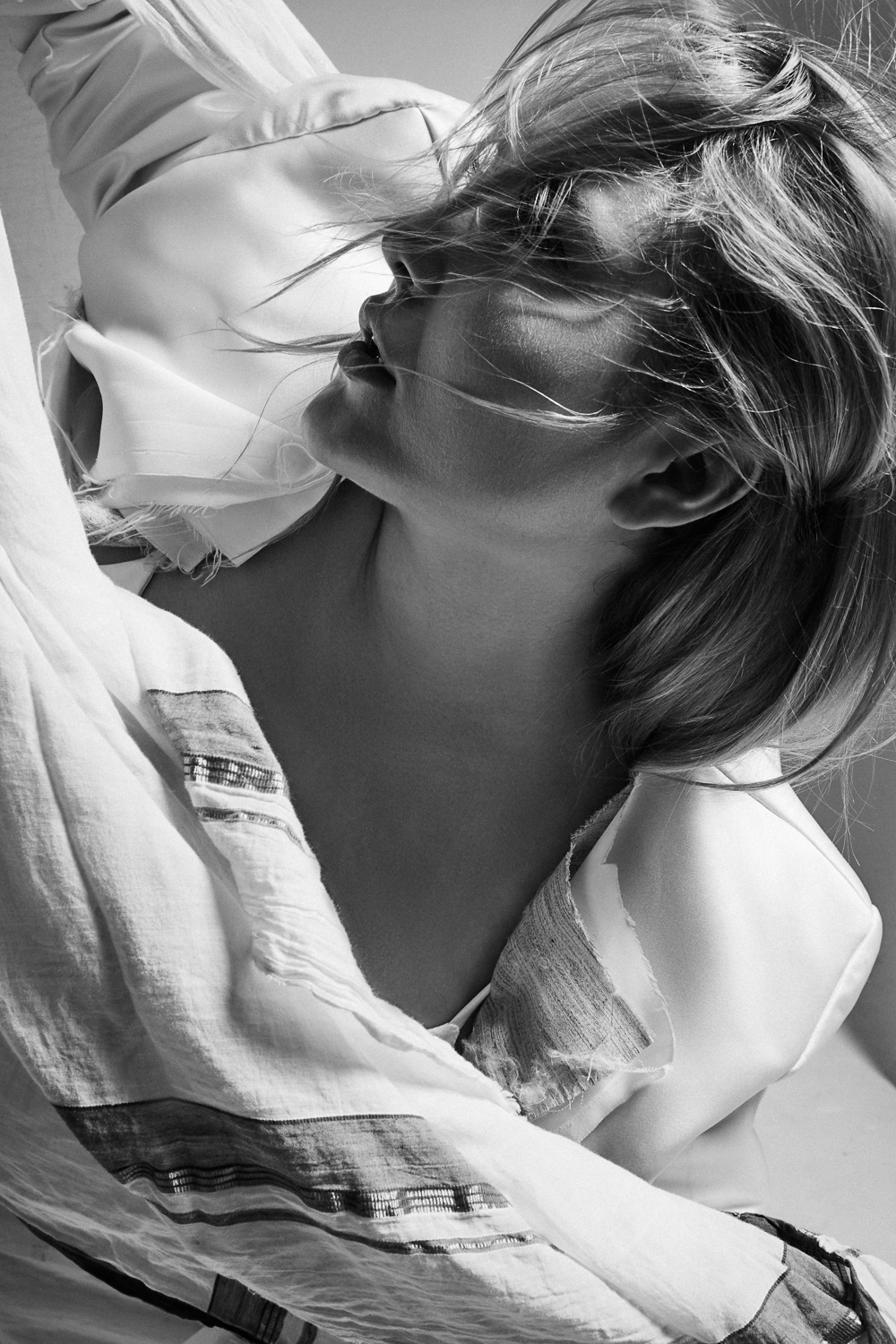
Tell me a little bit about when you spoke at Parliament. Did you end up getting the results that you had hoped for in that speech?
We spoke to Parliament in 2015. We tried to pass the Model Law to make sure that models weren’t going to unhealthy lengths of having to be weighed during fashion week. And so we wanted to pass the law with Caroline Nokes, who is an MP of Parliament in 2015. They gave me the honor of talking about it from the point of view of somebody who is in the curve industry and how there is a space for women to be celebrated within who they are and their message within the industry. So we had a gorgeous conversation about experiences, a conversation about how it immensely does affect our well-being, having to go into an agency.
I mean even on my end of things, I had an agency once upon a time, say that I was unrecognizable [due to weight gain]. I at that point in my life was so secure and outspoken, I said “Let’s go. I will get naked right now, let’s go to the bathroom,” because I didn’t think I gained that much weight. So I went to the bathroom and I literally gained one inch from our last ad. And I think it’s something where you put on a brave face, but I did go into the car afterward and called my mom and cried. I think it is one of those things where it does affect you because it’s an industry at the end of the day and you want to be able to remind yourself of that, but you also need to know that clients will always want something different. And so that difference is that that job may not be right for you right then, but that job will come back around when it is right for you. It’s about staying true to who you are and staying healthy and fit, but knowing that you have that worth no matter what else circles around it.
At the time that they said you gained an inch, were you doing more traditional modeling or was that when you were already doing the curve modeling?
It was when I was doing curve modeling.
I’m surprised that they would be so concerned over an inch as a curve model.
I mean this was years ago so obviously things have changed greatly now. It’s an industry itself and you are going to run into people who are going to have an opinion on things and that’s just a part of the industry, right? It’s about knowing that you have worth and that job will come back around when it is meant for you and when it is right. One of my biggest messages to anybody who is in the industry is to stay true to who you are and it will happen. Just hard work and staying true to who you are is the best advice anybody can ever give you. There’s always going to be people along the way who are going to want to stop you and you just have to block them out and know your worth.
I understand you do a lot of really amazing fundraising – Teens Helping Teens, Wheels for Humanity, Make a Wish. Tell us about these nonprofits that you’re passionate about and what you have going on at the moment with charity and fundraising activities.
One of the best things that my family taught me at a very young age was the beauty of using our voice in an industry where we get to do what we love. When we were younger, we worked with Wheels for Humanity and Make a Wish Foundation.
Teens Helping Teens was actually something that my best friend Nathalia Ramos and I ended up developing when we were 16. We ended up raising $158,000+ for the Children’s Hospital Los Angeles. We found that when we were visiting the hospitals (we were both actresses and we would go do the rounds and say hello), we found that the children’s room had everything that it could need for a child, but nothing for a teen. So you think about teens in a hospital missing out on prom, on these milestone moments while they see everyone else living life. So we wanted to provide the fun for them to feel like they had a room where they had availability to have iPads so they could FaceTime their friends and they could feel very inclusive in their teen years.
I have just become an ambassador for a couple different nonprofits which I am very passionate about. I’ve been very selective over the past years over who I’ve really wanted to work with. We’re doing some amazing work with an inspiring nonprofit right now called Free a Girl, which is an anti-sex-trafficking organization that if you don’t know of them, please take a look. They have a campaign right now called “Voice For Justice” which is about amplifying women’s voices who have been sexually exploited and helping them feel empowered that they have women behind them to be able to get their perpetrators to justice. One of the most substantial things about the nonprofit itself is that it allows these women not only to have a safe house after they are rescued, but they also give them free education to become lawyers themselves so that they start to get that power back to actually bring their perpetrators to justice. One of the things that has actually been brought to my attention over this past year about sex trafficking and our need to really amplify these voices, is that over 70% of women are sex trafficked in Texas alone and only 2% of children who are sexually exploited get their perpetrators to justice. There’s so much work that needs to be done and I feel very grateful that I was introduced to them and I have now become their Signified Social American Ambassador.
I also work with Project Zero, which I’m sure you’ve heard about, which is about helping with non-waste in the ocean. They’re doing some amazing projects this year by being able to raise funds for the right direction. It’s all about your carbon footprints and being able to amplify what we can do to help our oceans around the world and most importantly, I feel like it’s giving people a better understanding of what is going on. Education is key and that’s exactly what Project Zero does. They educate you on what needs to happen and how you can get involved.
Lastly, I have my hand out to a couple of different mental health charities right now, one of which is Project Healthy Minds. With mental health on the rise, I think it’s really important to amplify the normalized conversation we have around it, but I think most importantly, for myself, it’s about starting to have people understand the difference between mental health and mental illness. Also, helping people understand that it’s okay to not be okay and that there’s a vulnerability in strength. There’s so much information I feel like has happened throughout this pandemic in a very positive way. So many more voices have been able to be heard. We’ve been able to finally come to a great place of putting our minds to purpose. Mental health in America and beyond is something that is on the rise and something that I think that we still feel a bit ashamed to speak about. Many of my Redefine Yous that I did were with friends of mine who have been in the industry for 10+ years, who have never spoken up about their mental health, and we had a conversation before we went on the Live about how we wanted to approach it to make everyone feel comfortable, but also get taken away with this idea that they’re not alone. I’m so grateful and I feel so blessed that in 2021 we’re speaking up about mental health. It’s actually a triumph and it’s something that we can all significantly understand each other to a different level of compassion and empathy.
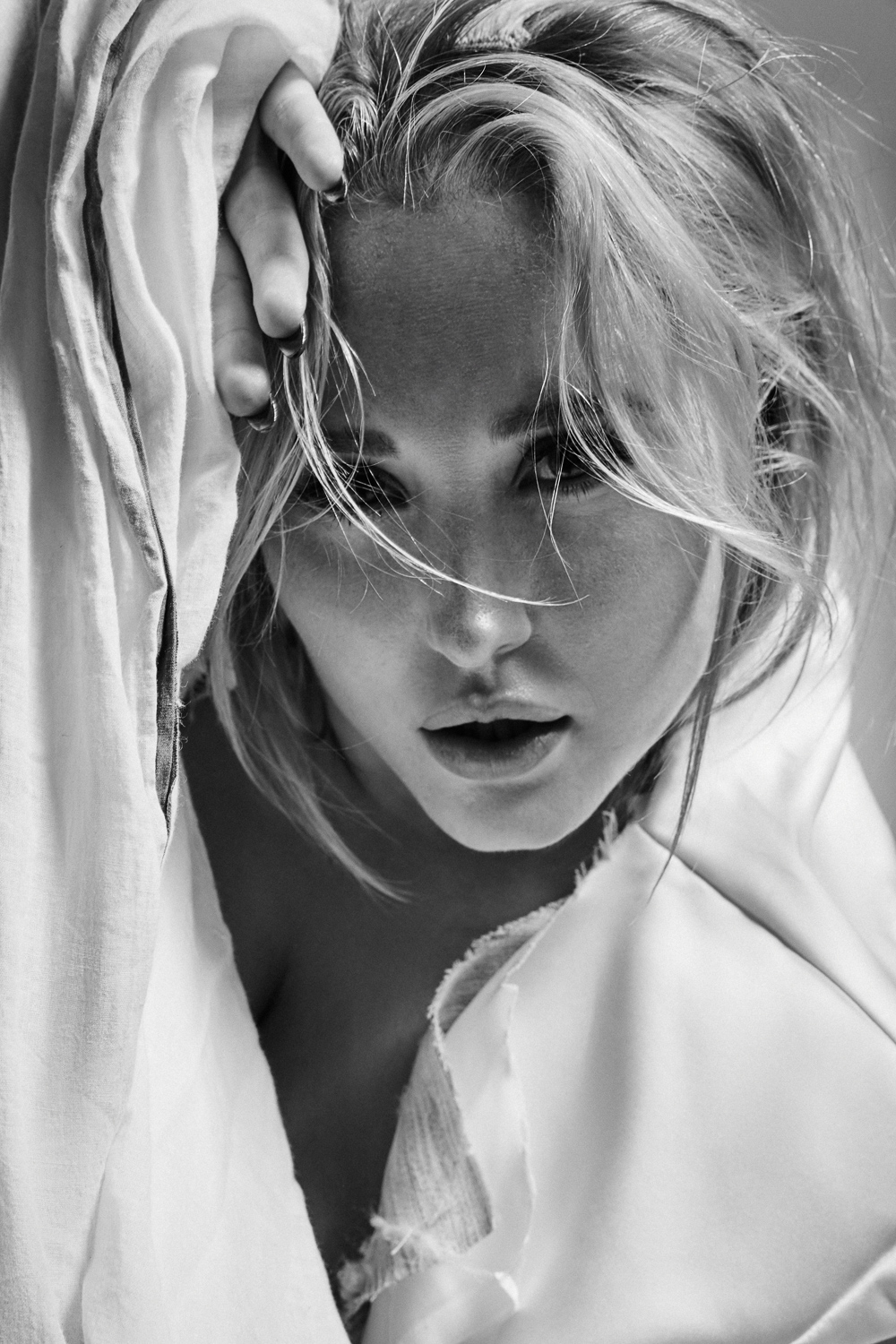
The pandemic certainly has shined a light on the many people addressing those issues and put them into focus. Tell me about any projects you have coming that we can look out for on the horizon. Anything we should keep our eyes on the radar for?
There are a ton of things in the pipeline that I can’t necessarily release yet. But we will definitely let you know when there’s a sooner date! What I can say to you is that these mental health conversations are going to be finding a bigger platform very soon in which we are very excited to speak about. I am actively back into the acting community, and I am continuing to champion size inclusivity in multiple different ways and will continue to do that for the rest of time. There’s a lot of great, great things that will be releasing a month or two after this Playboy release so I will definitely make sure to let you know!
Interview by Indira Cesarine for The Untitled Magazine


